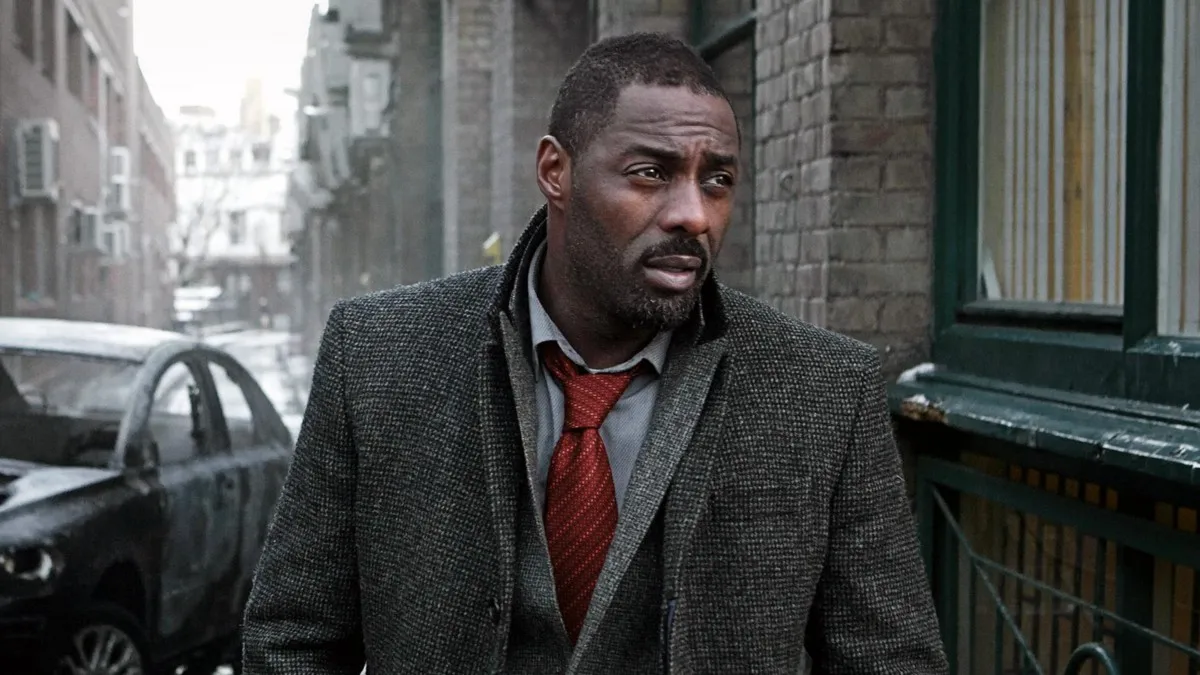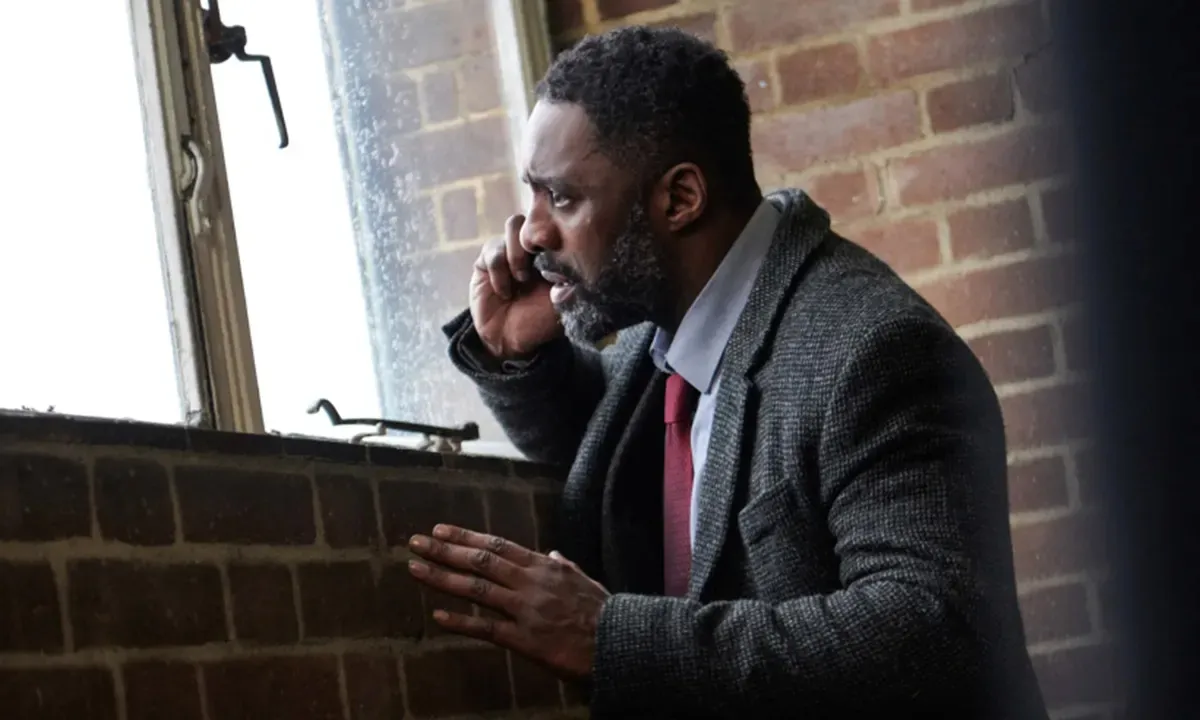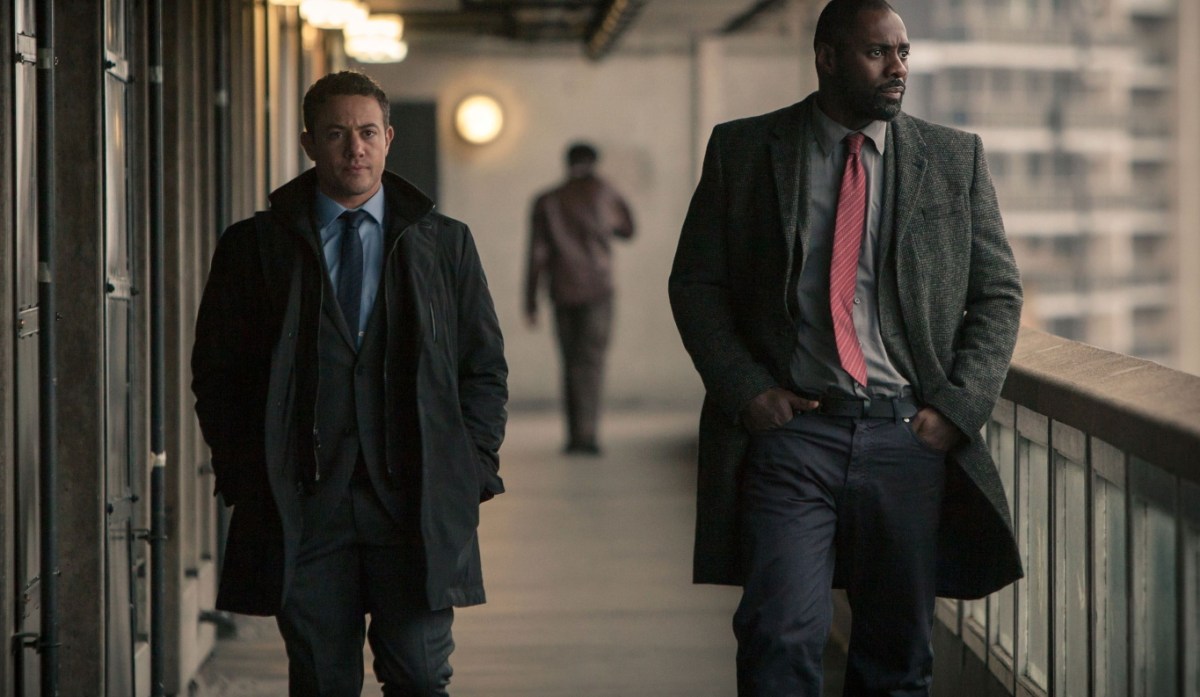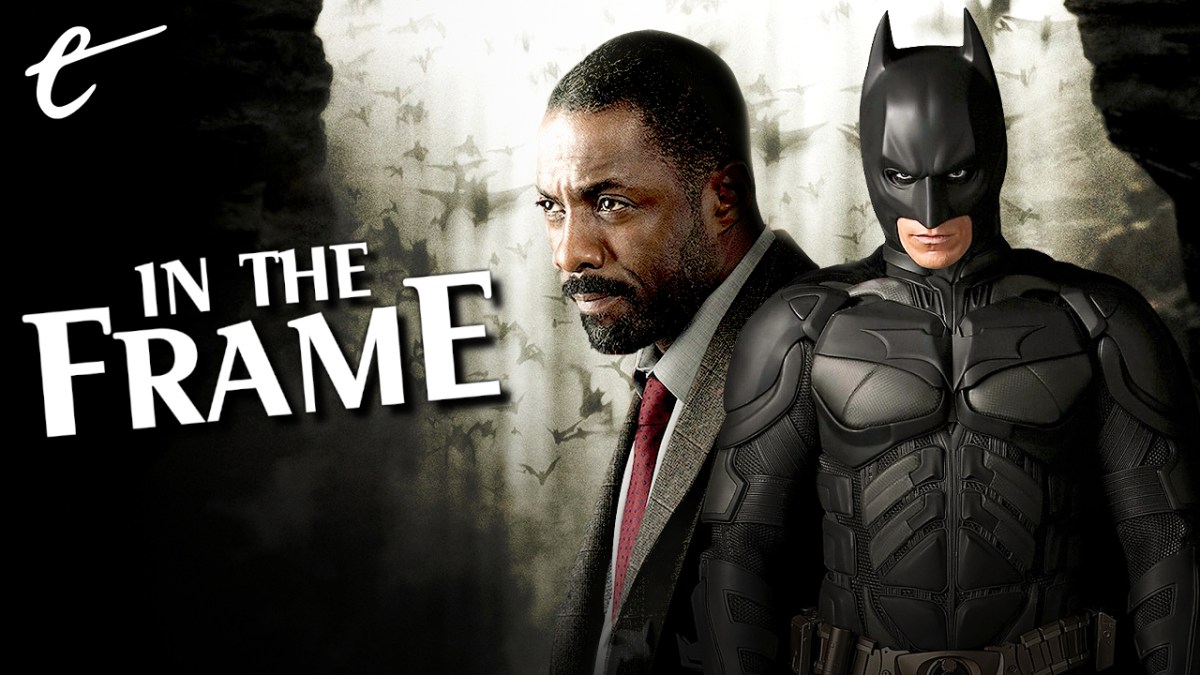Last week, Netflix announced that Luther: The Fallen Sun will be getting a limited theatrical release in February, before hitting the streaming service in March.
Luther has had a fascinating journey, taking a variety of forms since it launched as a BBC show in May 2010. The first season was a set of six standalone episodes. The second and third were four episodes each, each comprising a pair of two-part adventures. The fourth season was a single two-part adventure. The fifth was a single four-episode serialized miniseries. Now, the show has made the transition to feature film. It’s a journey befitting a show as eccentric as Luther.
On paper, Luther seems fairly straightforward. It looks and feels a lot like a conventional police procedural. Detective Chief Inspector John Luther (Idris Elba) is an officer with a unique understanding of the criminal mind. The show begins with Luther returning to duty following an incident that put accused serial killer Henry Madsen (Anton Saunders) in a coma. Luther has separated from his wife Zoe (Indira Varma) and is seen as something of a loose cannon.
This is all standard stuff, the basic bones of another cop show about another deeply troubled police officer who solves macabre crimes as his personal life falls apart around him. Indeed, that first season makes a point of tethering Luther to the American Law & Order franchise, with Luther casually alluding to “Detective Munch, in New York,” a reference to Law & Order regular John Munch (Richard Belzer), television crossover king and anchor of the so-called Tommy Westphall Universe.
However, these trappings belie the gonzo appeal of Luther. The show might casually resemble something like Criminal Minds or CSI, but it is an entirely different beast. There is a solid argument to be made that Luther is more of a comic book show than any of the official comic book adaptations to be found on streaming services or broadcast television. To boil the argument down to its essence, Luther is essentially a Batman show without the Caped Crusader.

The world of Luther has only the most superficial relationship to reality. By his own admission, writer Neil Cross has set the show in “a graphic novel-esque version of London.” Everything is heightened, surreal, and uncomfortable. John Luther drifts through an underworld populated by deranged cartoon serial killers and urban vigilantes, where everybody holds a dark secret and the rule of law is more a set of suggestions than anything that can actually be enforced.
This comparison is perhaps most obvious during the show’s second season. The first of that season’s two stories focuses on a serial killer who models themselves after the British folk legend of Spring-Heeled Jack. Failed art student Cameron Pell (Lee Ingleby) wears a Mr. Punch mask, evoking the sorts of circus performer-themed villains that frequent the pages of Batman comics, and even taunts the investigators. His cartoon villainy culminates in an attempt to kidnap a bus full of children.
The season’s second two-parter is built around a killer who makes their decisions based on the roll of a dice. It suggests the iconic Batman villain Two-Face, who makes similar decisions based on a coin toss. Indeed, it recalls Grant Morrison and Dave McKean’s Arkham Asylum graphic novel, in which psychiatrists help Two-Face replace the coin with a die and then with a set of tarot cards. Fittingly, this serial killer is revealed to be a set of twins, Robert and Nicholas Millberry (Steven Robertson).
Many police procedurals tend towards sensationalism, distorting reality in favor of gripping drama. Shows like CSI and Law & Order frequently generate criticism for dramatic excesses, whether their morbid fascinations with particular subcultures or the clumsiness of their ripped-from-the-headlines stories. Luther neatly sidesteps this issue by pushing so far to the extreme. It’s impossible to imagine Olivia Benson (Mariska Hargitay) or Elliot Stabler (Christopher Meloni) dealing with these cases.

The production team is acutely aware of this. According to the script for the fourth episode of the third season, the show’s recurring psychopath Alice Morgan (Ruth Wilson) doesn’t have an apartment — she has a “lair.” Co-star Warren Brown explains of the show, “Although it’s naturalistic, it’s very heightened. It is comic-book.” Guest star Sienna Guillory describes it as “a kind of cocktail of revenge tragedy, morality play and graphic novel.” Elba himself has compared Luther to Batman.
“I think both we and the audience have embraced that as Luther’s superhero coat, his superhero look, even though we know he’s a detective and he’s very much grounded in the police force,” Elba remarked of the character’s trench coat. “When he puts that on … even the sequence, by design, directed by Sam Miller, it’s definitely superhero-esque. It’s Batman going into the cave and pulling out his tricks. It’s designed that way. Someone told me earlier today() that Luther is almost like a graphic novel.”
There is something very interesting in all of this. In its own weird way, with its heightened setting, its internal dream logic, and the heavily stylized aesthetic from directors like Sam Miller, Luther can feel more like a comic book show than a lot of direct adaptations of existing works. There have been several attempts to set a police procedural in the world of the Dark Knight, most notably Gotham and the aborted Terence Winter HBO Max show spinning out of The Batman, but Luther nails that tone.
In particular, there’s a specificity to Luther that is missing from a lot of mainstream superhero media on the big and small screens. Much has been written about how the production mechanics of companies like Marvel Studios and Netflix effectively compress much of the source material into a fairly indistinct visual and aural aesthetic, one that doesn’t capture the diversity and the appeal of comic books as a medium. Plot and character beats are mapped over, but the art itself is lost.

Luther feels firmly rooted in a specific tradition of American comics, most notably those written by British writers as part of the movement known in the late 1980s and 1990s as “the British Invasion.” This movement included creators like Alan Moore, Neil Gaiman, and Grant Morrison. These writers fundamentally changed the superhero genre. Incidentally, British writers like Moore, Gaiman, Morrison, Peter Milligan, and Alan Grant had an outsized influence on Batman.
There are obvious parallels. During the first season, Luther tracks a satanic murderer, Lucien Burgess (Paul Rhys). The character seems to be an obvious allusion to famous British occultist and “wickedest man in the world” Aleister Crowley. However, the choice of name evokes another Crowley surrogate, Roderick Burgess from the early chapters of Gaiman’s The Sandman, memorably played by Charles Dance in the television adaptation. (Lucien is another character in the comic, the librarian.)
Like many of those British comic book writers, particularly Moore and Morrison, Neil Cross has a recurring fascination with the occult and with magic. Late in the first season, Luther reveals that his method involves scattering images and evidence on the ground around him, in the hope that patterns will reveal themselves. He likens the technique to the cut-up technique employed by musician David Bowie, who himself described it in mystical terms as “a very western Tarot.”
In fact, while the show’s colorful antagonists owe a lot to the supervillains that feature regularly in Batman comics, Luther himself evokes Alan Moore’s lasting legacy to mainstream superhero comic books. Wandering around a mystical version of London in a trench coat, confronting monsters and evil, Elba’s Luther resembles nothing so much as Alan Moore’s trickster magician John Constantine, a creation many writers and artists (including Moore) claim to have met in the real world.

Just like the idea of building a police procedural around the insanity of Gotham City, Hollywood has struggled to bring Moore’s John Constantine to the screen. Francis Lawrence’s Constantine is a fascinating film that works to the extent that it does because it doesn’t even try to directly translate the character, and it is reportedly getting a sequel. Matt Ryan headlined a swiftly canceled show before bouncing around The CW. HBO Max recently passed on another take on the character.
Again, there is a sense that Luther succeeds where more direct comic book adaptations fail by embracing a sense of heightened stylization. It can be hard to quantify a “vibe,” but Luther feels much closer to that wave of American comic books than any actual adaptation. It’s not hard to reimagine the show as a comic book published at DC’s Vertigo imprint during the late 1980s, under the oversight of editor Karen Berger. It’s moody, it’s atmospheric, it’s clever, it’s weird, it’s silly.
Luther is a remarkable genre exercise, a show that managed to find a unique angle on the familiar template of the police procedural by embracing an aesthetic that much larger-budget productions have chased to minimal success. There is nothing else like it on television, and hopefully The Fallen Sun can bring some of that magic to the big screen.





